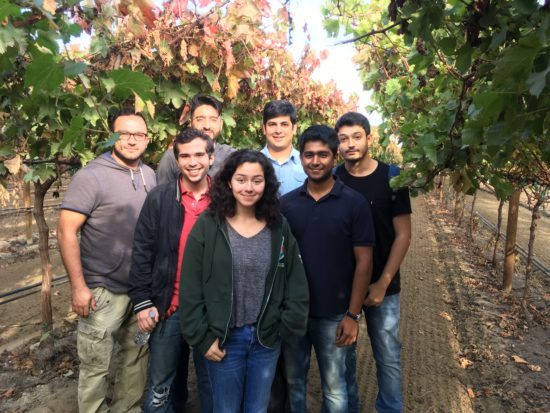La Cañada High School senior Faith Florez is no stranger to the plight of the workers who pick the food that we eat. She comes from a line of Mexican-American farmworkers who have worked the fields in California’s Central Valley. Her father, grandparents, and great-grandparents have experienced first hand the brutal conditions laboring in the nation’s breadbasket. Faith’s great-grandmother died because of the conditions in the fields.
Spending her grade school years in Shafter, California, a small town in Kern County, Faith was immersed in her community and witnessed the impact that the hot weather and the region’s major industry had on families.
During the past 10-12 years, there have been efforts to implement and enforce heat illness prevention rules in the fields, but many workers are unaware of the rules and notifications about the heat are inadequate. When temperatures soar, workers should be given rest periods and access to water. But the standards for safety are not always met. Some employers violate the heat standards, leaving their workers at risk.
Driven by a passion to help her community, Faith decided to create a tool that would help workers in the fields by notifying them when temperatures exceed 95 degrees so that they can take their legally mandated breaks, be provided with information about what to wear, eat, and drink based off of weather conditions and individualized information, access educational information about their rights and safety, and have a way to contact 911 should an emergency arise. The tool, fittingly called Calor, which means heat in Spanish, is an Apple Watch app.
La Comadre spoke to Faith about her work on the app and her experience with technology. Since last year, she has been working with a team of graduate coding students at USC’s Viterbi School of Engineering. To make sure that the app will do what its intended, Faith connected with farmers, farmworkers, and regulators for feedback.
“I really am not a technical person, but I had an idea and I was able to connect with people at USC who could help bring my idea to life. I’m more driven by social justice, analyzing the problems that we can solve with technology, and I’m more into liberal arts,” Faith said. “Students like me, who might not know how to code or that much about different programming languages, can get in touch with people who have these skills and develop a plan to create something that addresses a problem.”
Faith mentioned that while she now has friends who are interested in coding and building tools with technology, she did not have a strong STEM foundation at her school in Shafter. Even though there is a strong technology sector in the Golden State, most schools do not offer computer science. Although Faith does not have formal training in coding, she has been exposed to technology and ideas about what the technology that she uses and has access to can do for her community, in part because of the work of her dad, a former state legislator who has an interest in the intersection of technology and education.
Where does a seventeen year old go from here now that she has created an application that will operate on a wearable piece of technology?
“I see myself further dabbling in coding and engineering even though I’m not really interested in pursuing just that. I would like to pursue more projects like this that can merge my social justice interest with technology. What is important to me is that these are Latino problems that I’m trying to solve. While this app helps rural Latinos, I would like to create something that could be used by our community in urban areas,” Faith said.
Right now Faith is raising money to purchase watches that will be used in rollout of Calor. If you are interested in supporting this effort, click here to donate.*
*Disclosure: This author pledged a small donation to help get the Calor app launched prior to writing this piece.
Adriana Maestas
She has worked in the non-profit sector, in the K-12 system, and in higher education in various capacities. When she's not writing stories or working on media projects, Adriana trains instructors to teach online at the University of California, Irvine.
She holds a bachelor’s degree in political science from the University of California, Irvine and a master’s degree in public policy from Claremont Graduate University.

